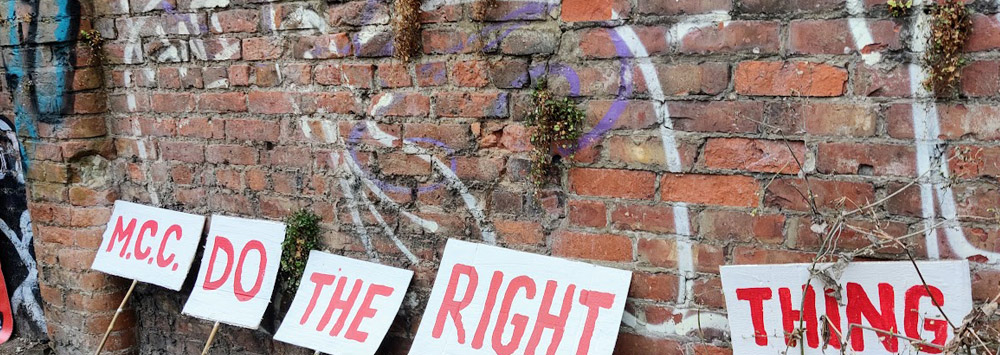Research expertise in the cluster in relation to this theme focuses on how people – either as individuals or as wider collectives/movements – attempt to envision alternative futures and alter the world around them. This may include small or prefigurative moments or activisms, being present in and challenging spaces of exclusion, working together in smaller groups to envisage and enact alternatives, developing critiques of what is and new knowledges about what could be, and new practices to bring future worlds into being. Research which contributes to geographical debates on activism and alternatives include:
- Transnational social movements; anti-capitalist, anti/de/post-colonial theories and critical pedagogies; climate and environmental activisms (Davies, North, Gahman, Smith, Mallick, Dasgupta)
- Fat activism and the embodied politics of health (Evans)
- Crip and disability activism in relation to chronic illness (Evans, Rose, Gahman), and accessible urban design (Rose)
- The role of walking tours and creative walking in challenging top down place-making and offering embodied understandings of theoretical perspectives (Rose)
- Community driven, grassroots action addressing health inequalities (Smith) and struggles for dignity and self-determination (Gahman, Mallick)
- Low carbon futures for the Anthropocene (North)
- Alternative economic practices such as alternative currencies, co-operatives, worker-run businesses and more solidaristic and emancipatory conceptions of entrepreneurialism (North)
- Human-nature relations in rural and urban environments (Smith)
- Community health, food sovereignty, and agroecology in Indigenous and Afrodescendant communities in the Caribbean and Central America (Gahman)
- Resisting border imperialisms and migrant worker exploitations: refugees and the European Union (Isakjee); Caribbean and Central American migrant labourers (Gahman); alternative representations of the 'refugee crisis' (Burrell)
- Contemporary psychogeographies, walking art and creative walking, (re)enchantment and collective urban imaginaries (Rose)
- Participatory arts-based methods, creative expression, and anti-corporate open access science and political education (Smith, Gahman)
- The methodological challenges and opportunities of researching volatile environments (Isakjee)
- Grassroots community-based research addressing extractivism, labour and urban struggles, climate injustice, and land grabbing in conflict-affected regions (Gahman, Smith, Mallick)
- Young people’s engagements with and creation of anti-racist spaces online and offline, the political potentials of youth work praxis (Cheung Judge)
- Criminalization of activist spaces against Islamophobia in France (Najib)
Back to: Department of Geography and Planning
